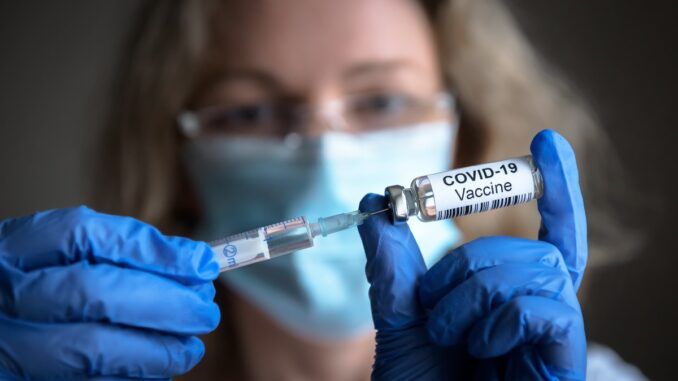
According to a new study, Covid vaccinations now appear to be beneficial in preventing heart and circulatory conditions.
The study, published in the journal Heart admits that some jabs are associated to side effetcs like blood clots or heart inflammation (myocarditis) but claim such side effects are ‘rare’.
The study which looked at the health of about 46 million people during the pandemic found that many covid vaccines ‘appeared’ to reduce the risk of heart attacks, strokes and other blood clot conditions for at least six months.

BYPASS THE CENSORS
Sign up to get unfiltered news delivered straight to your inbox.
You can unsubscribe any time. By subscribing you agree to our Terms of Use
So now we are being told that the benefits of taking the covid jabs outweigh the risks because they can protect against heart attacks… while, according to yet another study, leading a healthstyle is actually causing a surge in heart problems!
The British Medical Journal (BMJ) reports: Researchers set out to study the association between COVID-19 vaccination and the risk of post-COVID-19 cardiac and thromboembolic complications using population data for the UK, Spain and Estonia which included 10.17 million vaccinated people and 10.39 million unvaccinated people.
Individuals who were vaccinated received either an adenovirus-based vaccine (Oxford/AstraZeneca or Janssen) or one of the mRNA vaccines (BioNTech/Pfizer or Moderna).
The researchers identified cases of cardiac and thromboembolic complications in the first year after SARS-CoV-2 infection and recorded them according to four post-infection time windows: 0–30, 31–90, 91–180 and 181–365 days after infection.
A range of potentially influential factors, such as age, sex and pre-existing conditions including chronic lung disease, diabetes, heart disease and a history of blood clots were accounted for in the analysis to minimise bias.
The results show that COVID-19 vaccination was associated with reduced risks of heart failure, venous thromboembolism (clot within the veins of a limb) and arterial thrombosis/thromboembolism (blood clot in the artery) for up to a year after SARS-CoV-2 infection.
Reduced risk of other complications, such as ventricular arrhythmia/cardiac arrest (heart attack), myocarditis/pericarditis were also seen but only in the acute phase (first 30 days after infection).
Compared with unvaccinated individuals, having COVID-19 vaccination was associated with reduced risks of venous thromboembolism by 78%, arterial thrombosis/thromboembolism by 47% and heart failure by 55% in the first 30 days after SARS-CoV-2 infection.
As time progressed, the protective effects of vaccination waned, but remained at 47%, 28%, and 39% respectively at 91–180 days after infection and 50%, 38%, and 48% respectively at 181-365 days.
This is an observational study, so can’t establish cause and effect, and the authors highlight some limitations including the inherent data quality concerns and risk of bias with use of real-world data, and potential under-reporting of post-COVID-19 complications.
However, state-of-the-art statistical methods were used to deal with these limitations and results were consistent across all databases, which they say highlights the robustness and replicability of the findings.
As such, they conclude, “Our analyses showed a substantial reduction of risk (42–82%) for thromboembolic and cardiac events in the acute phase of COVID-19 associated with vaccination.”


